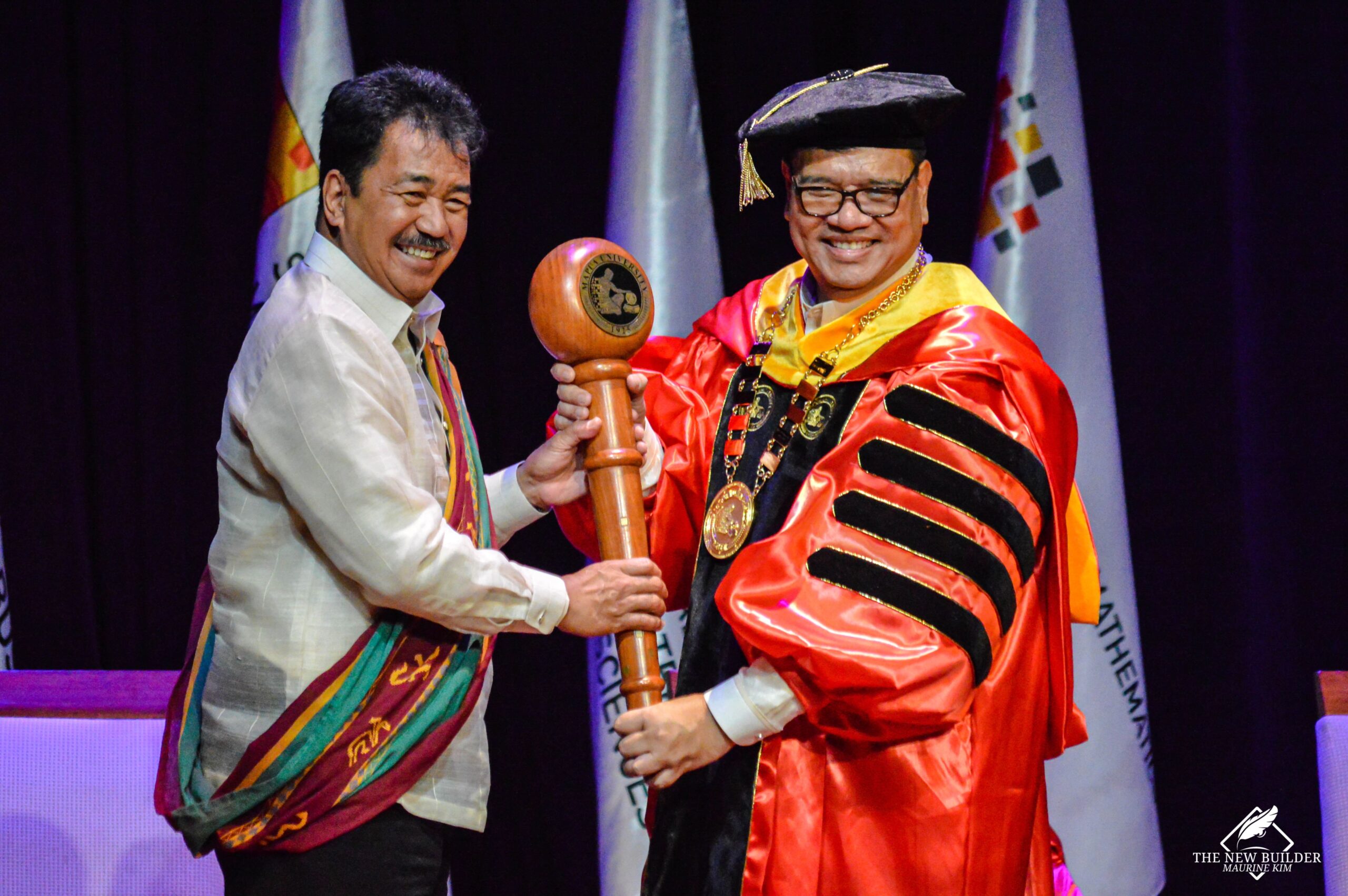Mapúa president shares bold plans for the university’s future in global education
Mapúa University’s new president and chief executive officer, Dr. Dodjie Maestrecampo, disclosed his vision of further expanding the university’s global leadership by putting more emphasis on proactively concentrating on innovation, digital transformation, and lifelong education to help students and society in general, attain sustainable economic growth.
This bold direction set the tone during the Mapúa leader’s formal investiture ceremonies at the Carlos P. Romulo Auditorium, RCBC Plaza Tower, where he rallied the Mapúan community to help elevate and prepare the local education sector to weather the potential challenges of emerging global trends. Given the past experiences during the pandemic, Dr. Maestrecampo said that education systems need to be ready and flexible for obstacles such as environmental concerns, fast-paced tech changes, and local and global crises.

“Being flexible is now a must for education systems. We should reconsider what skills are most important for students today and how best to teach them. The education sector is about to undergo a significant transformation due to emerging global trends, which will require quick adaptation and creative thinking,” said Dr. Maestrecampo.
He explained that six worldwide patterns could drastically affect the educational sector, global industries, and learners in the future. These emerging global trends, which include Climate Change, Global Markets, Digital Transformation, Knowledge Democracies, Artificial Intelligence (AI), and Learning Crisis, have already impacted certain areas and are expected to escalate in the coming years.
With his 37 years in the academe, from serving as professor, dean for Academic Affairs, executive vice president, and chief operations officer to his newest role as president of his beloved Alma Mater, Dr. Maestrecampo has experienced the progression and changes in the educational system. In fact, it was his foresight that led to the university’s seamless integration of technology and advanced digital infrastructure. This initiative paved the way for Mapúa’s smooth implementation of flexible learning modalities before, during, and after the pandemic. It also enabled him to establish Mapúa’s growing expansion campuses in Laguna and Davao.
Through his leadership and the cooperation of the Mapúa community, the university will empower students for climate action through curricular changes, pedagogical approaches, and partnerships. The institution will equip workers and industries to adapt to the green economy while adopting green infrastructure and operations.
To address global markets and digital transformation, the university will train students for emerging jobs that require state-of-the-art technology and complex cognitive and attitudinal competencies. It will allocate a more significant investment in technological resources such as simulators and virtual reality platforms and maximize apprenticeships and specialized programs to equip students for the demands of modern and future workplaces.
This effort is supported by the continuous improvement of its digital tools and infrastructure, learning spaces, schedules, content, and teaching methodologies. The university will begin an in-depth study on the merits and impact between in-person instruction and distance learning, as well as between learner autonomy and instructional support.
To ensure that students properly harness the use of AI, Mapúa has encouraged conversations among students about the effects and ethical use of AI in education while exploring the transdisciplinary integration or ‘AI-across-the-curriculum’ approach of AI-related skills. Doing so ensures that students will receive a technologically advanced yet morally and socially conscious education, which will benefit them in an AI-integrated future.
These preparatory steps are not limited to the campus. Dr. Maestrecampo encouraged fellow educators to be actively involved in addressing the country’s learning crisis.
He explained that higher education institutions like Mapúa should concern themselves with primary and secondary education. High schools, particularly, “feed” universities, and knowledge and skill gaps during this period affect tertiary education.
To bridge the gap, Mapúa will develop open-access educational resources or online modules focused on literacy and numeracy skills to democratize access to quality educational content. At the same time, Mapúa will continue its training program for STEM teachers.
The fourth university president’s plans for the future doesn’t end there. Dr. Maestrecampo, the first alumni to become president of Mapúa, hopes to inspire students to reach their full potential and prepare them for the fourth industrial revolution. By elevating their local and international performance and rankings, consistently excelling in board and certification exams, collaborating with international research projects and organizations, upgrading facilities to multi-purpose creative spaces, and transforming itself into a leading innovation hub that specializes in pioneering research, he hopes to develop a generation of global workers who will remain highly-competent in an Industry 4.0 world.
“We will build on the foundation laid by my predecessor, Dr. Reynaldo Vea. We will maintain our commitment to academic excellence while exploring new avenues in technology integration, international partnerships, and research collaborations. While our ambitions require us to evolve, this University must remain a place where students receive unparalleled education that will transform their lives and the lives of those around them,” said Dr. Maestrecampo.
“I am an engineer, and engineers make things better, stronger, and more efficient. As president, I have been allowed to build a stronger university on the solid foundation where Mapúa stands,” he added.
ADVT.